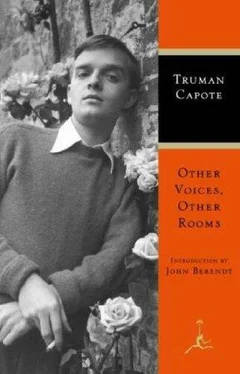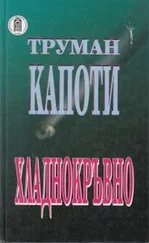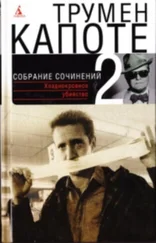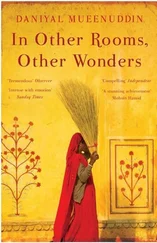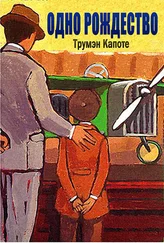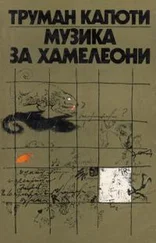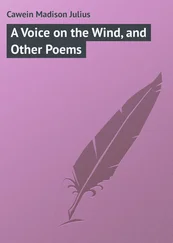Трумэн Капоте - Other Voices, Other Rooms
Здесь есть возможность читать онлайн «Трумэн Капоте - Other Voices, Other Rooms» весь текст электронной книги совершенно бесплатно (целиком полную версию без сокращений). В некоторых случаях можно слушать аудио, скачать через торрент в формате fb2 и присутствует краткое содержание. Год выпуска: 2004, ISBN: 2004, Издательство: Random House Inc, Жанр: Современная проза, на английском языке. Описание произведения, (предисловие) а так же отзывы посетителей доступны на портале библиотеки ЛибКат.
- Название:Other Voices, Other Rooms
- Автор:
- Издательство:Random House Inc
- Жанр:
- Год:2004
- ISBN:0-679-64322-2 / 978-0-679-64322-7
- Рейтинг книги:5 / 5. Голосов: 1
-
Избранное:Добавить в избранное
- Отзывы:
-
Ваша оценка:
- 100
- 1
- 2
- 3
- 4
- 5
Other Voices, Other Rooms: краткое содержание, описание и аннотация
Предлагаем к чтению аннотацию, описание, краткое содержание или предисловие (зависит от того, что написал сам автор книги «Other Voices, Other Rooms»). Если вы не нашли необходимую информацию о книге — напишите в комментариях, мы постараемся отыскать её.
Other Voices, Other Rooms — читать онлайн бесплатно полную книгу (весь текст) целиком
Ниже представлен текст книги, разбитый по страницам. Система сохранения места последней прочитанной страницы, позволяет с удобством читать онлайн бесплатно книгу «Other Voices, Other Rooms», без необходимости каждый раз заново искать на чём Вы остановились. Поставьте закладку, и сможете в любой момент перейти на страницу, на которой закончили чтение.
Интервал:
Закладка:
A whirl of ferris-wheel lights revolved in the distance; rockets rose, burst, fell over Noon City like showering rainbows; gawky kids and their elders, all beautiful in their Sunday summer finest, traipsed back and forth with reflections of the carnival starring their eyes; a young Negro watched sadly from the isolation of the jail, and a rhinestone colored girl, red-silk stockings flashing; on her legs, swished by shouting lewdly up at him. On the porch of the cracked ancient house old people recalled traveling-shows in other years, and little boys, going behind hedges to pee, lingered to laugh and pinch each other. Ice-cream cones slipped from grimy fingers, crackerjack spilt and so did tears, but nobody was unhappy, nobody thought of chores beyond the moment.
Hiya, Idabel-Watcha say, Idabel? but not a soul spoke to him, he was no part of them, they did not know him; only R. V. Lacey remembered. "Look, babylove!" she said, when they appeared in the door of her Princely Place, and those assembled there, beribboned sassy-faced town-tarts and rednecked farmboys with cow-dumb eyes, paused in their jukebox shuffling; one girl advanced to tickle him under the chin. "Where'd you find this, Idabel? He's cute."
"Mind your own business, punk," Idabel said, seating herself at the counter.
Miss Roberta Lacey wagged her finger. "Idabel Thompkins, I warned you time and again, none of that gangster talk in my establishment. Furthermore, I have many times put into words the fact that you are not to set foot inside my place, acting as you do like Baby Face Floyd, and dressing as you do in no proper way befitting a young lady: now skidaddle, and take that filthy hound with you."
"Please, Miss Roberta," said Joel, "Idabel's awful hungry."
"Then she oughta be home learning to fix a man his vittels (laughter); besides which this here's a grown-folks cafй (applause). Romeo, remind me to put up a sign to that effect. Whatismore, Idabel, your daddy has been round here inquirin as to your whereabouts, and it is my serious opinion he means to burn up that saucy little butt of yours (laughter)."
Idabel leveled a slant-eyed look at the proprietress, then, as though this seemed to her the most expressive retort, she spit on the floor, shoved her hands in her pockets and swaggered out. Joel started to follow, but R. V. Lacey clamped a hand on his shoulder. "Babylove," she said, toying with the long black hair extending from her chin-wart, "Angelboy, you're keeping kinda peculiar company. Idabel's daddy said she's done broke her pretty sweet little sister's nose, and knocked out most her teeth." Grinning, scratching under her armpits like a baboon, she added, "Now don't go saying Roberta's a hard woman; she's soft on you," and handed him a bag of salted peanuts. "No charge."
Idabel told him what he could do with those old Roberta goobers, but she relented, to be sure, and devoured the sack solo. She let him take her arm, and they descended on the gala beehive acre where the traveling-show buzzed. The merry-go-round, a sorry battered toy, turned to a jingling sound of bells, and colored folks, who were not allowed to ride, stood clustered at a distance getting more fun from its magical whirl than those astride saddles. Idabel shelled out 35ў at the dart-throw game, all in order to win a pair of dark glasses like the ones Joel had broken, and what a ruckus she raised when the strawhat man tried to palm off a walking cane! You bet she got those specs, but, being too large for her, they kept sliding down her nose. At the 10ў Tent they saw a four-legged chicken (stuffed), and the two-headed baby floating in a glass tank like a green octopus: Idabel studied it a long while, and when she turned away her eyes were moist: "Poor little baby," she said, "poor little thing." The Duck Boy cheered her up; he sure was a comedy all right, quack-quack-quacking, making dopey faces and flapping his hands, the fingers of which were webbed together; at one point he opened his shirt to reveal a white feathery chest. Joel preferred Miss Wisteria, a darling little girl, he thought, and so did Idabel; they did not quite believe she was a midget, though Miss Wisteria herself claimed to be twenty-five years old, and just back from a grand tour of Europe where she'd appeared before all the crowned heads: her own sweet little gold head sported a twinkling crown; she wore elegant silver slippers (it was a marvel the way she could walk on her toes); her dress was a drape of purple silk tied about the middle with a yellow silk sash. She hopped and skipped and giggled and sang a song and said a poem, and when she came off the platform, Idabel, more excited than Joel had ever seen her, rushed up and asked, please, wouldn't she have some sodapop with them. "Charmed," said Miss Wisteria, twisting her gold sausage curls, "charmed." Idabel humbled herself; she bought cokes, found them a place to sit, and made Henry keep his distance, for Miss Wisteria confessed to a fear of animals. "Frankly," she lisped, "I do not think God intended them." Except for rouged kewpie-doll lips, her baby-plump face was pale, enameled; her hands flitted about so that they seemed to have a separate life of their own, and she glanced at them now and again as if they deeply puzzled her; they were smaller than a child's these hands, but thin, mature, and the fingernails were painted. "Well, this is surely a treat," she said. "Now lots of show-people are just plain put-ons, but I don't hold with any put-on, I like to bring my art to the people… lots of whom don't see how come I jog around with an outfit like this… look, they say to me, there you were out in Hollywood pulling down a thousand dollars a week as Shirley Temple's stand-in… but I say to them: the road to happiness isn't always a highway." Draining her coke, she took out a lipstick and reshaped her kewpie-bow; then a queer thing happened: Idabel, borrowing the lipstick, painted an awkward clownish line across her mouth, and Miss Wisteria, clapping her little hands, shrieked with a kind of sassy pleasure. Idabel met this merriment with a dumb adoring smile. Joel could not understand what had taken her. Unless it was that the midget had cast a spell. But as she continued to fawn over tiny yellow-haired Miss Wisteria it came to him that Idabel was in love. No, she would not consider leaving, there was a world of time. "Charmed," said Miss Wisteria to a suggestion they ride the ferris-wheel, "charmed."
A rash of lightning rattled the stars; Miss Wisteria's royal headgear caught fire in this brief tinseled burst, the glass jewels glittering roselike in the pink lights of the ferris-wheel, and Joel, left below, could see her white winglike hands alight on Idabel's hair, flutter away, squeeze the dark as if eating its very substance. They swung low, their laughter rippling like Miss Wisteria's long sash, and, rising toward a new flush of lightning, dissolved; still he could hear the midget's penny-flute voice purring persistent as a mosquito above every fairground noise: Idabel, come back, he thought, thinking he would never see her again, that she would travel into the sky with Miss Wisteria at her side, Idabel, come back, I love you. So then she was there, telling him, "You can see way off, you can almost touch the sky," so then he was aboard the ferris-wheel, alone with Miss Wisteria, and together they watched Idabel diminish as the rocking rickety car started to climb.
Wind swung them like a lantern; it is wind, Joel thought, for he could see the pennants trembling above the tents, trash-paper scurrying animal-like along the ground, and over there, on the walls of the old house where a Yankee bandit had murdered three women, raggedy posters danced a skeleton jig. The car in front contained a sunbonneted mother and her little girl, who nursed a corncob doll; they waved to a farmer waiting below. "Y'all better get offen that thing," he called back, "hitsa fixin to rain." Around they went, wind rustling Miss Wisteria's purple silk. "Run away, is it?" she said, a smile displaying rabbity teeth. "Well, I said to her, and I say to you: the world is a frightening place." She gestured her arms in an arc, and in that moment she seemed to him Outside, to be, that is, geography, earth and sea and all the cities in Randolph's almanac: her queer little hands, twittering midair, encompassed the globe. "And oh a lonesome place. Once I ran away. I had four sisters (Maudy went to Atlantic City as Miss Maryland, she's that beautiful), tall lovely girls, and my mother, bless her soul, stood nearly six feet in her stockings. We lived in a big house in Baltimore, the nicest on our street, and I never went to school; I was so little I could sit in my mother's sewing basket, and she used to joke that I could crawl through the eye of her needle; there was a beau of Maudy's who could balance me in the palm of his hand, and when I was seventeen I still had to sit in a highchair to eat my supper. They said I need not play alone, there are other little people, they said, go out and find them, they live in flowers. Many's the petal I've peeled but lilac is lilac and no one lives in any rose I ever saw; a spot of grease is all a wishbone leaves, and there is only candy in a Christmas stocking. Then I was twenty, and Mama said it wasn't right I shouldn't have a beau, and she sat right down and wrote a letter to the Sweethearts Matrimonial Agency in Newark, New Jersey. And do you know a man came to marry me: he was much too big, though, and much too ugly, and he was seventy-seven years old; well, even so, I might have married him except when he saw how little I was he said bye-bye and took the train back to from whence he'd come. I never have found a sweet little person. There are children; but I cry sometimes to think little boys must grow tall." Her voice, while making this memoir, had stiffened solemnly, and her hands folded themselves quietly in her lap. Idabel waved, shouted, but wind carried her words another way, and sadly Miss Wisteria said: "Poor child, is it that she believes she is a freak, too?" She placed her hand on his thigh, and then, as though she had no control over them whatsoever, her fingers crept up inside his legs: she stared at the hand with shocked intensity but seemed unable to remove it, and Joel, disturbed but knowing now he wanted never to hurt anyone, not Miss Wisteria, nor Idabel, nor the little girl with the corncob doll, wished so much he could say: it doesn't matter, I love you, I love your hand. The world was a frightening place, yes, he knew: unlasting, what could be forever? or only what it seemed? rock corrodes, rivers freeze, fruit rots; stabbed, blood of black and white bleeds alike; trained parrots tell more truth than most, and who is lonelier: the hawk or the worm? every flowering heart shrivels dry and pitted as the herb from which it bloomed, and while the old man grows spinsterish, his wife assumes a mustache; moment to moment, changing, changing, like the cars on the ferris-wheel. Grass and love are always greener; but remember Little Three Eyes? show her love and apples ripen gold, love vanquishes the Snow Queen, its presence finds the name, be it Rumpelstiltskin or merely Joel Knox: that is constant.
Читать дальшеИнтервал:
Закладка:
Похожие книги на «Other Voices, Other Rooms»
Представляем Вашему вниманию похожие книги на «Other Voices, Other Rooms» списком для выбора. Мы отобрали схожую по названию и смыслу литературу в надежде предоставить читателям больше вариантов отыскать новые, интересные, ещё непрочитанные произведения.
Обсуждение, отзывы о книге «Other Voices, Other Rooms» и просто собственные мнения читателей. Оставьте ваши комментарии, напишите, что Вы думаете о произведении, его смысле или главных героях. Укажите что конкретно понравилось, а что нет, и почему Вы так считаете.
